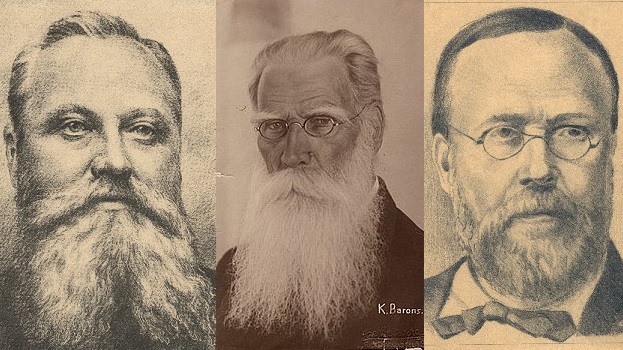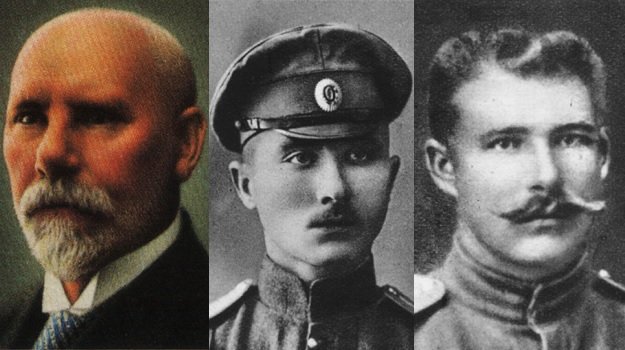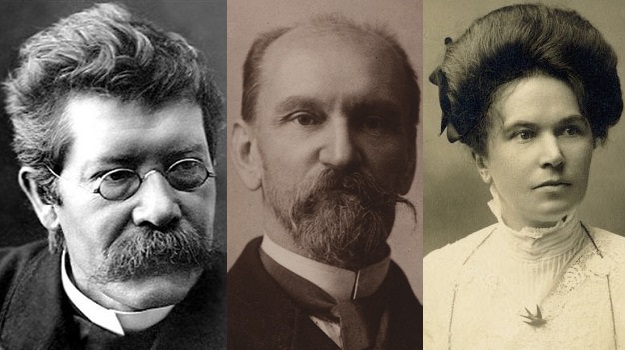The Latvian nation is not big enough to have many worldwide celebrities or people who influenced the world.
However, in Latvia itself, there are numerous well-known historical figures.
Among the best known are the 19th-century people who led the Latvian National Awakening. This is understandable: without their work Latvian nation would perhaps be already assimilated.
The work they have begun was safeguarded by Latvian freedom fighters and politicians who led the nation into independence.
As the nation was reborn, numerous Latvian writers and poets surfaced who would be writing in Latvian. Some of them became key pillars for the Latvian nation and its independence, while others have collaborated with various occupational authorities.
Before the 19th century, Latvians were mostly uneducated peasants and lacked any influence. The Latvian language was also nearly unused outside the family sphere. As such, it is difficult to classify the pre-19th-century figures as Latvians. Even if they were born in Latvia, most of them were of foreign origin, especially German.



